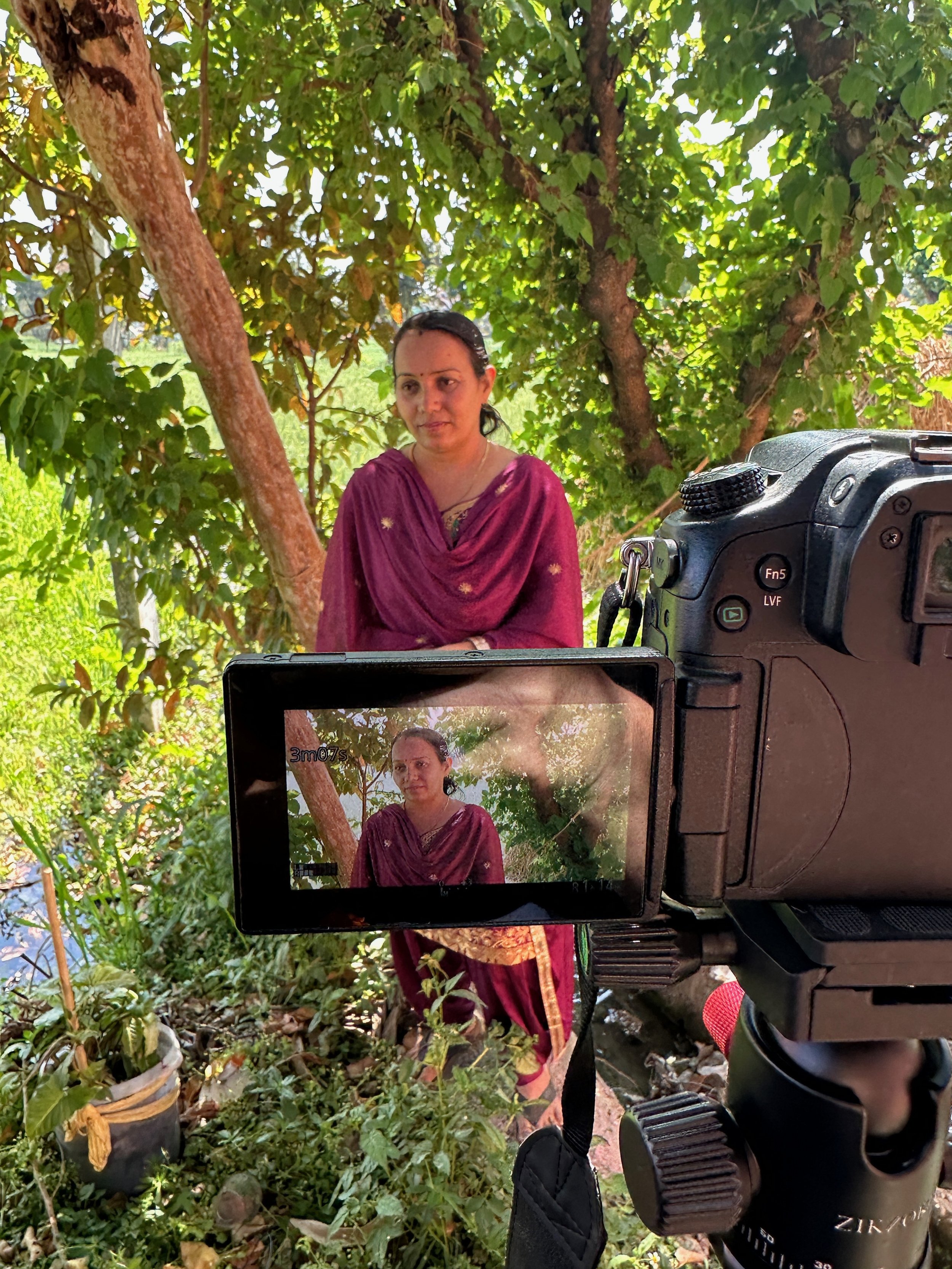Elevating Voices Of Women Farmers Around The World.
Women farmers in all corners of the globe are leading a quiet revolution for a climate and food-secure future.
Women Who Farm the World is a global initiative to make sure women are seen, heard, & not forgotten!
WWFW highlights international farmers, seed keepers, and thought leaders on the forefront of our climate emergency inspiring local solutions with global impact.
Through the art of storytelling, WWFW will magnify the U.N. 2026 International Year of the Woman Farmer.
WWFW is a response to the consistent call among world leaders and civil society to magnify women’s contributions, leadership, and actions in their fight against climate change. As the largest international climate change gathering, the United Nations annual Convention of the Parties (COP) is a major global stage to amplify these voices.
WWFW launch at COP30 in Brazil in 2025. Our powerful video exhibits, media outreach, and COP participation can influence governments, the philanthropic community, the media, and key opinion leaders to action and investment for women farmers.
COP31 & United Nations 2026 Year of the Woman Farmer. WWFW’s compelling videos amplify the goals of the U.N.’s 2026 Year of the Woman Farmer to raise awareness about the critical roles that women play and shine a global spotlight on needed reforms to further empower women across the globe.
COP30 | COP31
2026 Year of the Woman Farmer
WWFW is catalyzing change by raising awareness and informing policymakers, the media, opinion leaders, and citizens how women are advancing ecological food and farm systems that build climate resilience and food security for all.
We began in India. Meet the farmers and thought leaders telling their stories about building climate-resilient communities.
MEET THE FARMERS
The International Labour Organization estimates that women comprise 41% of the world's industrialized agricultural workforce and 60-80% in non-industrialized countries.
Industrial agriculture is responsible for at least 30% of climate change, yet there has been little discussion about the critical need to reduce and eliminate harmful industrial agriculture practices and elevate policies and practices for agro-ecological, regenerative food and farm systems.





